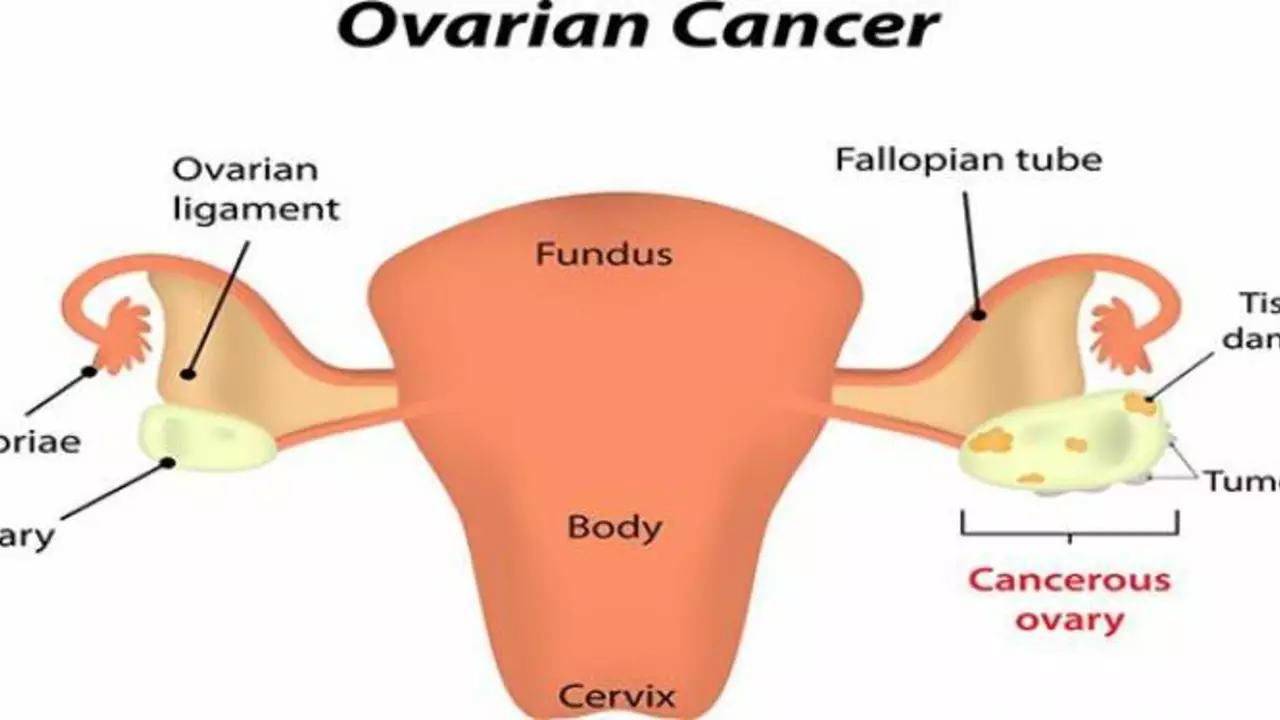Ovarian cancer — signs, risks, screening, and what to do
Ovarian cancer often starts quietly. That’s why small changes in your body matter. If you’ve had bloating, pelvic pain, or feeling full quickly for weeks, pay attention — and don’t ignore it because it could be something simple or something that needs testing.
Common signs and how they feel
Symptoms can be subtle and easy to blame on stress or digestion. Watch for persistent changes for more than a few weeks: bloating or a swollen belly, pelvic or lower back pain, feeling full fast when eating, needing to pee more often, unexplained weight loss or gain, and abnormal vaginal bleeding. If pain is sudden or severe, seek care right away.
Note how long symptoms last, what makes them better or worse, and if they come with other issues like fatigue or digestive changes. Bring those notes to your appointment — they help your doctor figure out next steps.
Risk factors and who should be more cautious
Age is a major factor: risk rises after menopause. A family history of ovarian or breast cancer, especially with BRCA1 or BRCA2 gene changes, increases risk a lot. Other factors: endometriosis, never having been pregnant, obesity, and certain inherited conditions. Hormonal birth control and having children lower risk, though they’re not guarantees.
If you have a strong family history, ask about genetic testing and earlier screening. Genetic counseling can explain what tests mean and what preventive options exist.
How screening works: there’s no single, perfect test for early ovarian cancer. Doctors may use a pelvic exam, a transvaginal ultrasound (TVUS), and a blood test called CA-125. Each has limits — CA-125 can rise for many reasons and TVUS can miss tiny tumors. Still, together they help guide decisions about biopsies or surgery.
Treatment depends on stage and health. Common steps include surgery to remove the tumor and nearby tissue, chemotherapy, and newer targeted drugs like PARP inhibitors for specific genetic types. Fertility can be affected; if you want children, talk about options early — fertility-preserving surgery or egg freezing may be an option in some cases.
Practical tip: track symptoms in a simple daily note or app. Bring questions to your doctor: “Could this be ovarian cancer? What tests do you recommend? If tests are normal, when should I return?” If you want more on fertility or tracking cycles, check related guides like our article on vitamins for fertility and tracking PMS symptoms.
Feeling worried is normal. Get a medical check if symptoms persist, and insist on clear next steps. Early attention gives you more options and better outcomes.

